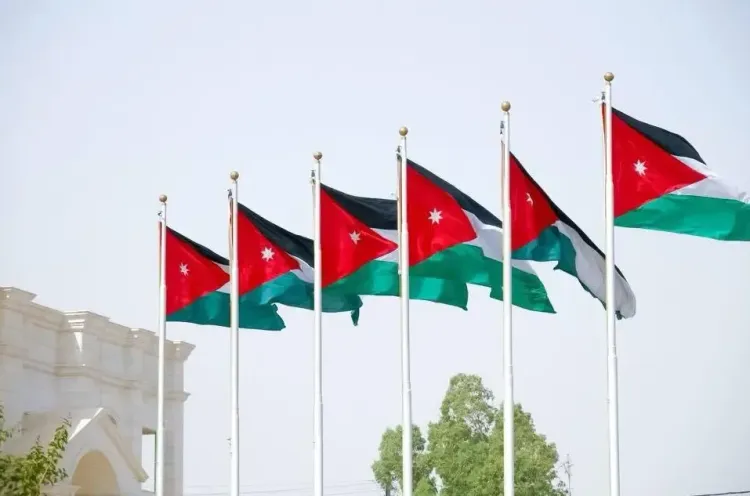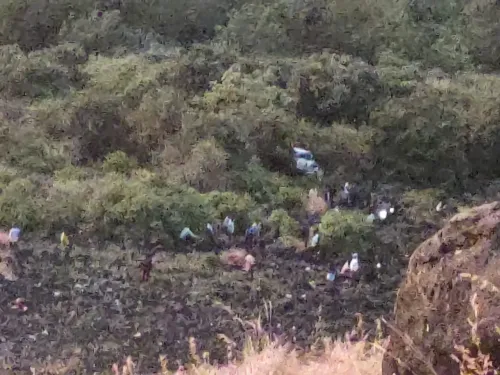Why Did Jordan Condemn the Israeli Strike Near Syria's Presidential Palace?

Synopsis
Key Takeaways
- Jordan condemns Israeli military actions as violations of international law.
- The Israeli strike near Syria's presidential palace raises sovereignty concerns.
- Intensified clashes between local forces in Syria have resulted in significant casualties.
- Calls for international intervention to halt Israel's aggressions are increasing.
- The ongoing conflict highlights challenges in achieving stability in the region.
Amman, May 3 (NationPress) Jordan has issued a strong condemnation regarding an Israeli strike that occurred near the presidential palace in Syria's capital, Damascus, as well as Israel's ongoing attacks on Syrian territory.
The strike near the presidential palace is a blatant violation of international law, infringing upon Syria's sovereignty and territorial integrity, which exacerbates regional tensions. The spokesperson for the Foreign Ministry, Sufian Qudah, made this statement on Friday.
He pointed out that Israel's persistent military actions against Syria constitute a clear breach of the Agreement on Disengagement established between Israel and Syria in 1974, and represent a direct challenge to the sovereignty of an Arab nation, as reported by Xinhua.
Qudah reiterated Jordan's unwavering support and solidarity with Syria, calling on the international community to pressure Israel into halting its provocative and illegal aggressions against Syria and to end its occupation of Syrian territories.
In a joint statement earlier on Friday, Israeli Prime Minister Benjamin Netanyahu and Defence Minister Israel Katz confirmed the overnight attack near the presidential palace in Damascus.
This attack followed deadly clashes that escalated earlier this week between local Druze fighters and pro-government forces south of Damascus, leading to more than 100 casualties, according to the Syrian Observatory for Human Rights.
The Israeli statement characterized the strike as a “clear message” to the Syrian regime, asserting that Israel “will not tolerate the movement of forces south of Damascus or any threats to the Druze community.”
In retaliation, the office of the Syrian leader condemned the strike, asserting that Syria will defend its people's rights “by all available means.”
Since the Islamist-led forces ousted long-time Syrian President Bashar al-Assad last December, Israel has targeted hundreds of military sites.
Additionally, Israel has deployed troops into the demilitarized buffer zone that once separated Israeli and Syrian forces in the Golan Heights.
On Wednesday, Israel executed strikes near Damascus and issued warnings of further actions if aggression towards the Druze community persisted.
Syria's new Islamist authorities have promised an inclusive governance approach in the diverse, multi-ethnic nation, yet face internal pressures from radical Islamist factions.
On Friday, Ahmed al-Sharaa met with Lebanese Druze leader Walid Jumblatt, who previously urged the minority community in Syria to resist “Israeli interference.”
The latest wave of violence comes in the wake of the March massacres of Alawites, where security forces and their allies reportedly killed over 1,700 civilians.
This incident marks the most severe bloodshed since the overthrow of Assad, who hails from the Alawite minority.
The government has accused loyalists of Assad of instigating the violence and has initiated an inquiry.










